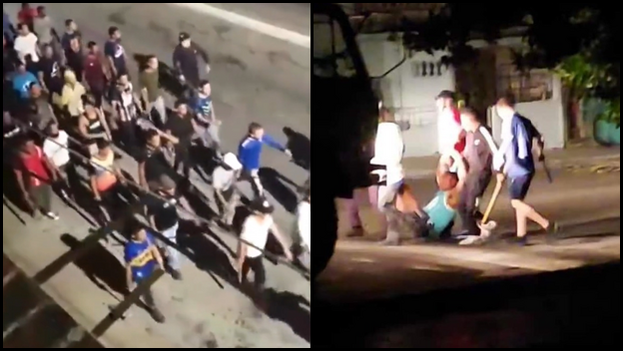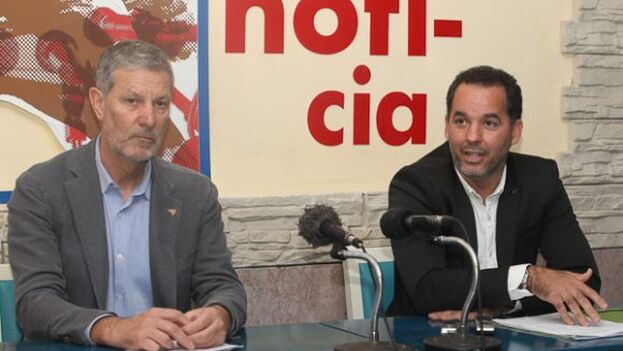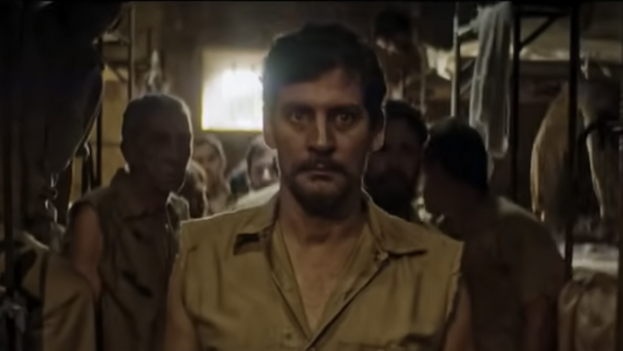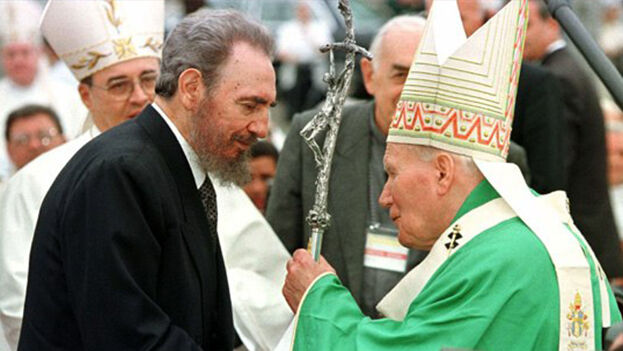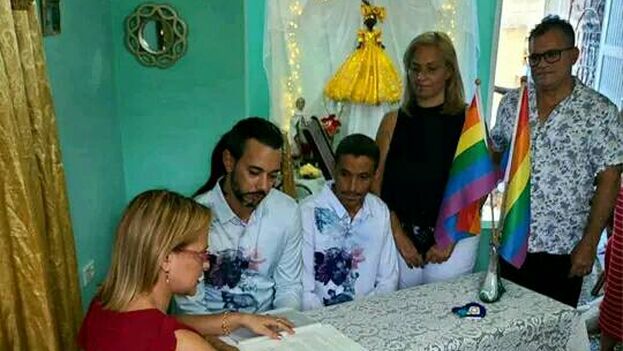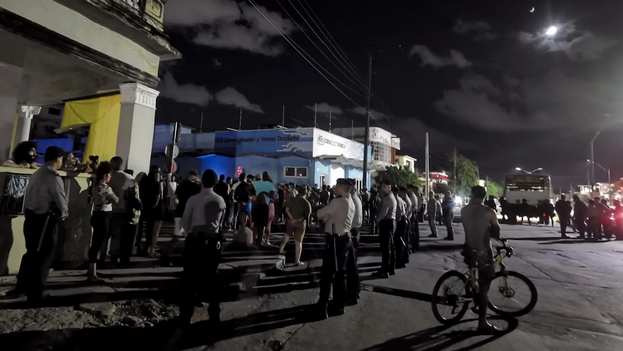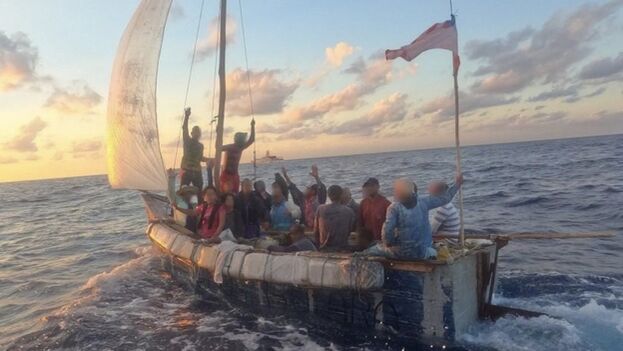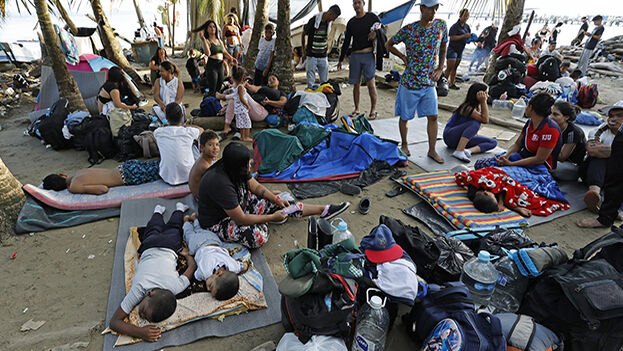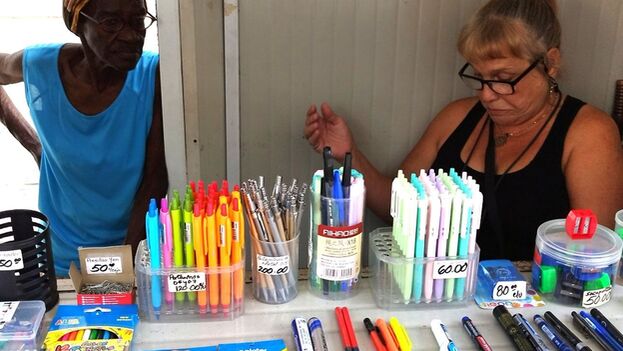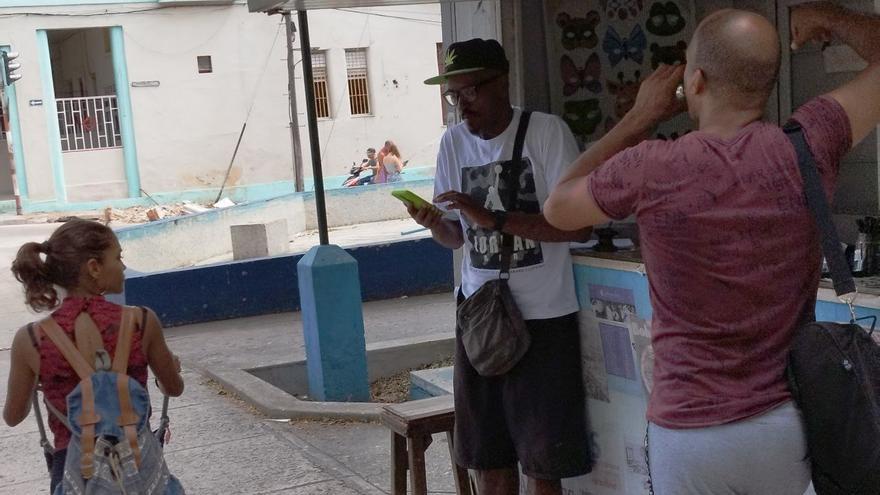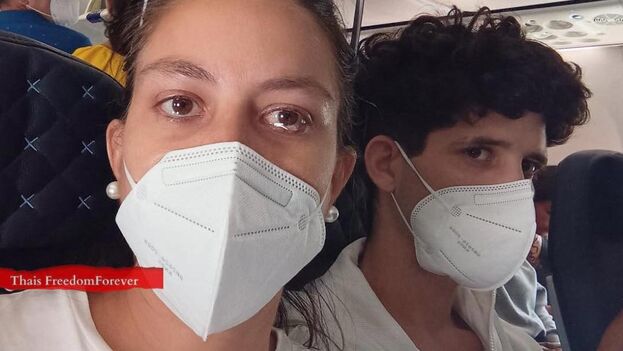
![]() 14ymedio, Juan Diego Rodríguez, Havana, 11 October 2022 — The leaders of the Communist Party in Bejucal had to endure the shouts of “Freedom in Bejucal,” “The people united will never be defeated” and “Let them leave,” which served as the rallying cry for the protests this Monday night in that municipality of Mayabeque.
14ymedio, Juan Diego Rodríguez, Havana, 11 October 2022 — The leaders of the Communist Party in Bejucal had to endure the shouts of “Freedom in Bejucal,” “The people united will never be defeated” and “Let them leave,” which served as the rallying cry for the protests this Monday night in that municipality of Mayabeque.
“They’ve done too much to us,” said Magalys, who took to the streets with her small son. “People started banging on pots from their houses with the blackout; then more people joined, and we all met in front of the Party,” she says.
The women marched in house coats; the men, without a shirt or with a sweater used as a mask, to avoid identification. All caution is taken when it comes to protecting faces: several videos show police agents, cell phones in hand, recording protesters from afar.
“They didn’t attack us last night because today they will review the videos and go looking for the people they recognize,” explains Magalys. “It’s the new strategy.”
The woman explains that the town is divided into two electrical circuits and that the blackouts, in turns, are nine hours. “They turned off the current at nine in the morning and put it on around six,” she says, a situation to which the population, although dissatisfied, has become accustomed. However, two hours later they suspended electrical service again.
“The justification is that the Electric Company received instructions from the Government to schedule another power outage, after two or three hours, because the current deficit is too large in the country,” she says. continue reading
“The shouts were not only ’turn on the current!’ but also ’freedom, freedom, freedom!’ and ’Let them go!’ says Magalys. “In our area, where the Party is, they turned on the current right away.”
“They immediately cut off the Internet connection, of course,” she adds. The most disappointing thing, Magalys explains, is that half of Bejucal — which already had electricity — stared at the protest as if it had nothing to do with them. “There would have been hundreds of people, but I expected more massiveness. A lot of people were standing in their doorways.”
It all ended around 10:00 p.m., without repression, but with a thorough record of the events by the Ministry of the Interior.
At that same time, in Caibarién, Villa Clara, a man shouted “the day of freedom can be today!” while recording, with difficulty the demonstration with his cell phone. Women, parents with children on their shoulders, elderly people, bike-taxi drivers and electric motorcycles advanced through the streets of this municipality of Villa Clara.
“Come on, join us, Caibarién!” and “Cuba, get out here!” were the shouts of the protest, which extended to La Libertad park, where the headquarters of the municipal government is located. “Yes, we can!” shouted the residents as they reached the most central point in town.
The person who filmed the demonstration clarified again and again that it was a peaceful march. “The violence is from them,” he said, referring to the beatings of the police and the “rapid response brigades” to repress those who take to the streets.
Several protests like these took place on October 10, a significant date because it’s the day that marks the start, in the 1800s, of the wars of independence on the Island, throughout the national territory. Although there are reports of demonstrations and cacerolazos* in other municipalities of Mayabeque such as San José de las Lajas, Güines, Nueva Paz and Jaruco, as well as in Camagüey, Las Tunas, Holguín and Santiago de Cuba, the information available is very fragmentary.
*Translator’s note: Cacerolazos [from ’cacerola’ – saucepan — and the source of ’casserole’ in English] is the word for beating on pots and pans in a protest demonstration.
Translated by Regina Anavy
____________
COLLABORATE WITH OUR WORK: The 14ymedio team is committed to practicing serious journalism that reflects Cuba’s reality in all its depth. Thank you for joining us on this long journey. We invite you to continue supporting us by becoming a member of 14ymedio now. Together we can continue transforming journalism in Cuba.

